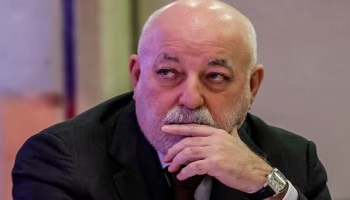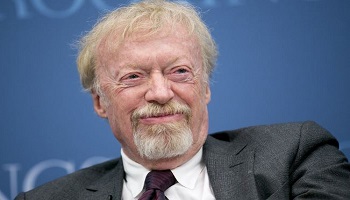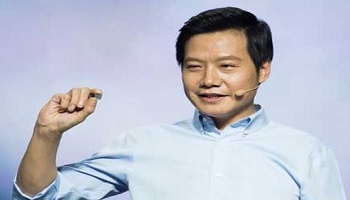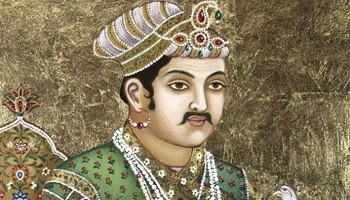
Viktor Vekselberg Net Worth The Fortune Behind Russia Metals Mogul
Viktor Vekselberg is one of Russia’s most influential billionaires. Known for his vast wealth and powerful influence in the country’s industrial landscape, Vekselberg has built a fortune primarily through his investments in the metals and energy sectors. As the founder of Renova Group, a diversified holding company, and as a major shareholder in Russia’s largest businesses, Vekselberg’s story is one of entrepreneurial vision, strategic business deals, and the ability to navigate the complex landscape of post-Soviet Russia.
From his early beginnings to his rise as one of the richest men in Russia, Vekselberg’s wealth has made him a key figure in both the Russian economy and the global business scene. His diverse portfolio includes companies in metals, energy, and technology, showcasing his ability to adapt and expand in multiple industries.
In this post, we’ll dive into how Viktor Vekselberg built his fortune, his major investments, and the factors that contributed to his substantial net worth.
Early Life and Beginnings
Viktor Vekselberg was born on April 14, 1957, in Dnepropetrovsk (now Ukraine), which was then part of the Soviet Union. He grew up in a Jewish family, and from a young age, he displayed a keen interest in business and technology. He graduated from the Moscow Institute of Transportation Engineering in 1980, specializing in railway engineering. Although his background was technical, his entrepreneurial spirit soon led him into the world of business.
In the 1980s, during the final years of the Soviet Union, Vekselberg began working in the Soviet-era mining and metals industries. However, it was the privatization of state assets after the collapse of the Soviet Union that provided Vekselberg with the opportunity to amass his fortune.
The Rise of Renova Group: A Strategic Business Move
In the 1990s, as Russia transitioned from a communist economy to a market-driven one, many of the country’s most valuable assets—particularly in energy and metals—were privatized. This period of economic upheaval created massive opportunities for savvy entrepreneurs to buy up state-owned enterprises at bargain prices.
Vekselberg seized this moment by establishing the Renova Group in 1990. Renova started as an investment firm, focused on acquiring Russian assets in strategic sectors. The company’s first major success came when Vekselberg bought a controlling stake in Tyumen Oil, a major Russian oil company, which he later sold to Yukos. His astute investments in the early years helped him establish a foothold in Russia’s most lucrative industries.
Renova soon expanded its interests to the metals industry, acquiring a significant stake in SUAL, a Russian aluminum company. Through a series of strategic investments, Vekselberg built Renova into one of Russia’s most powerful business conglomerates. He became one of the largest shareholders in UC Rusal, the world’s largest producer of aluminum, and his wealth grew exponentially.
Major Investments and Key Holdings
Viktor Vekselberg’s business empire spans several sectors, but it is his investments in metals, energy, and infrastructure that have contributed the most to his net worth. His main assets include:
1. UC Rusal
One of the most significant contributors to Vekselberg’s fortune is his stake in UC Rusal, the world’s largest producer of aluminum. Vekselberg, through Renova, became one of the largest shareholders of Rusal in the early 2000s. He played a crucial role in the company’s growth and its eventual listing on the Hong Kong Stock Exchange in 2010.
Rusal controls over 10% of the world’s aluminum production, making it a key player in the global metals industry. Aluminum is a critical material used in everything from aerospace to construction, and Rusal’s influence has given Vekselberg a major stake in the global economy. The value of Rusal has fluctuated over the years, but its position in the market has remained a cornerstone of Vekselberg’s wealth.
2. The Oil & Gas Sector
Vekselberg has maintained a significant presence in Russia’s energy sector, particularly in oil and natural gas. Renova has holdings in several energy companies, including stakes in Sibur, Russia’s leading petrochemical company, and Novatek, the country’s largest independent natural gas producer.
These companies are critical to Russia’s energy strategy, and Vekselberg has been able to leverage his positions to maintain a profitable role in Russia’s energy industry. Sibur, in particular, is a major player in the global petrochemical market, producing a range of products from plastics to fertilizers. The company’s success has helped solidify Vekselberg’s reputation as a top businessman in Russia.
3. Technology and Innovations
Vekselberg has also made significant investments in the technology sector, recognizing the potential of this emerging industry. His Renova Group owns a controlling stake in Rusnano, a state-run company that focuses on the development of nanotechnology and the commercialization of innovative technology. Rusnano has invested in various green energy projects, advanced materials, and high-tech manufacturing solutions.
Vekselberg has also invested in several other technology companies in Russia, further expanding his business empire into tech innovation. His investments in this sector have allowed him to diversify his portfolio, positioning himself for success in the rapidly growing global tech economy.
4. Real Estate
In addition to metals, energy, and technology, Vekselberg has significant holdings in real estate. His Renova Group has been involved in several high-profile real estate projects, both in Russia and abroad. Notably, Vekselberg’s real estate ventures have included luxury properties in key cities like Moscow, London, and New York.
His real estate holdings also extend to infrastructure development, particularly in transportation and utilities. These investments have provided Vekselberg with another avenue for wealth generation while strengthening his business empire.
Vekselberg’s Wealth: A Billionaire’s Lifestyle
With a net worth estimated to be around $15.1 billion (as of 2024), Viktor Vekselberg is among the wealthiest individuals in Russia. His fortune places him on the list of Russia’s top billionaires, but his wealth is not just measured by financial figures. It is also reflected in his lifestyle and the influence he commands.
Vekselberg is known for his understated approach to wealth, preferring to operate behind the scenes rather than seeking the limelight. He is a frequent supporter of philanthropic causes and is deeply involved in cultural preservation. Vekselberg has funded the renovation of several historical monuments in Russia and abroad, including the Fabergé Museum in St. Petersburg, which houses one of the most important collections of Fabergé eggs.
His private collection of art and antiques is renowned, and he has amassed one of the world’s largest collections of Russian imperial artifacts. Vekselberg’s interests in the arts reflect his belief in the importance of cultural preservation, and he is considered one of Russia’s leading philanthropists in the arts.
Political Connections and Controversies
Viktor Vekselberg’s wealth and success have also placed him at the center of Russia’s political landscape. As with many of Russia’s richest individuals, Vekselberg’s business dealings have often been intertwined with political connections. He has maintained close ties with the Russian government, especially under President Vladimir Putin’s administration.
These connections have helped Vekselberg secure lucrative government contracts and favorable business deals, particularly in the energy and metals sectors. However, his business dealings have not been without controversy. Vekselberg has faced scrutiny from both international governments and financial institutions, particularly due to his ties to Russian oligarchs and his involvement in controversial dealings.
In recent years, Vekselberg has been subject to U.S. sanctions, following Russia’s political actions in Ukraine and its alleged interference in Western elections. Despite this, he has managed to retain much of his wealth and influence, and his business empire continues to thrive, albeit with some challenges in the global market.
The Future of Viktor Vekselberg’s Wealth
As of 2024, Viktor Vekselberg remains a significant figure in global business, with his wealth continuing to grow. His diversified investments in metals, energy, and technology have positioned him well for future success, particularly as the world increasingly focuses on sustainable energy and innovative technologies. Vekselberg’s stake in Rusnano and other technology ventures places him at the forefront of future industries, potentially increasing his wealth as these sectors grow.
However, like many of Russia’s richest individuals, Vekselberg faces challenges from both domestic and international political pressures. His wealth, which was built during a period of economic transition in Russia, is subject to the changing dynamics of the global economy and political landscape.
Viktor Vekselberg’s journey from a young engineer to one of Russia’s wealthiest businessmen is a testament to his strategic vision, adaptability, and ability to capitalize on opportunities in the post-Soviet economy. His wealth, estimated at $15.1 billion, is derived from his investments in metals, energy, technology, and real estate, with his company, Renova Group, acting as the centerpiece of his vast business empire.
Despite controversies surrounding his political connections and involvement in international business deals, Vekselberg’s legacy as a powerful businessman and philanthropist continues to grow. As Russia’s business landscape evolves, Viktor Vekselberg will likely remain a key figure, influencing industries and economies both in Russia and around the world.



